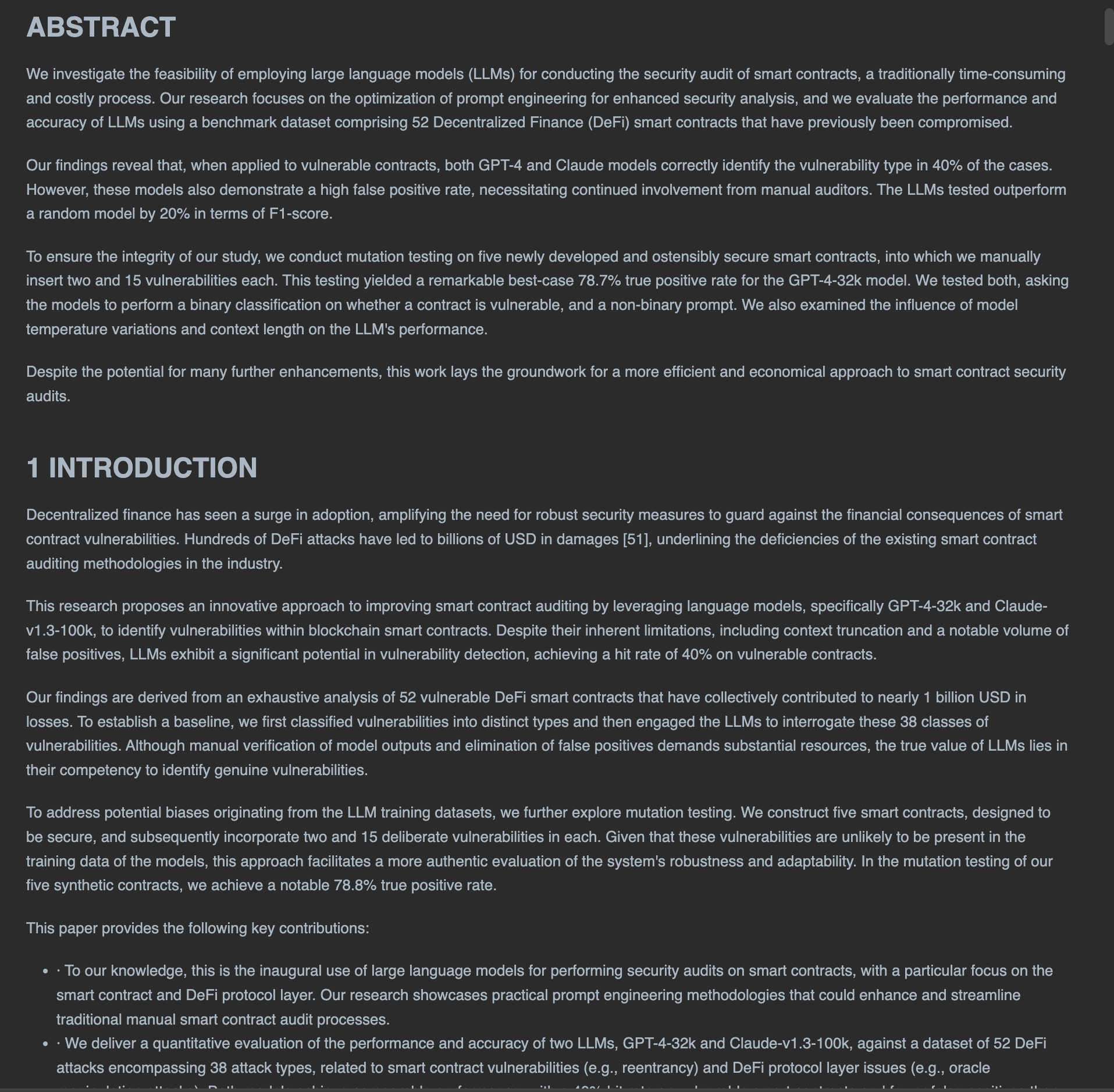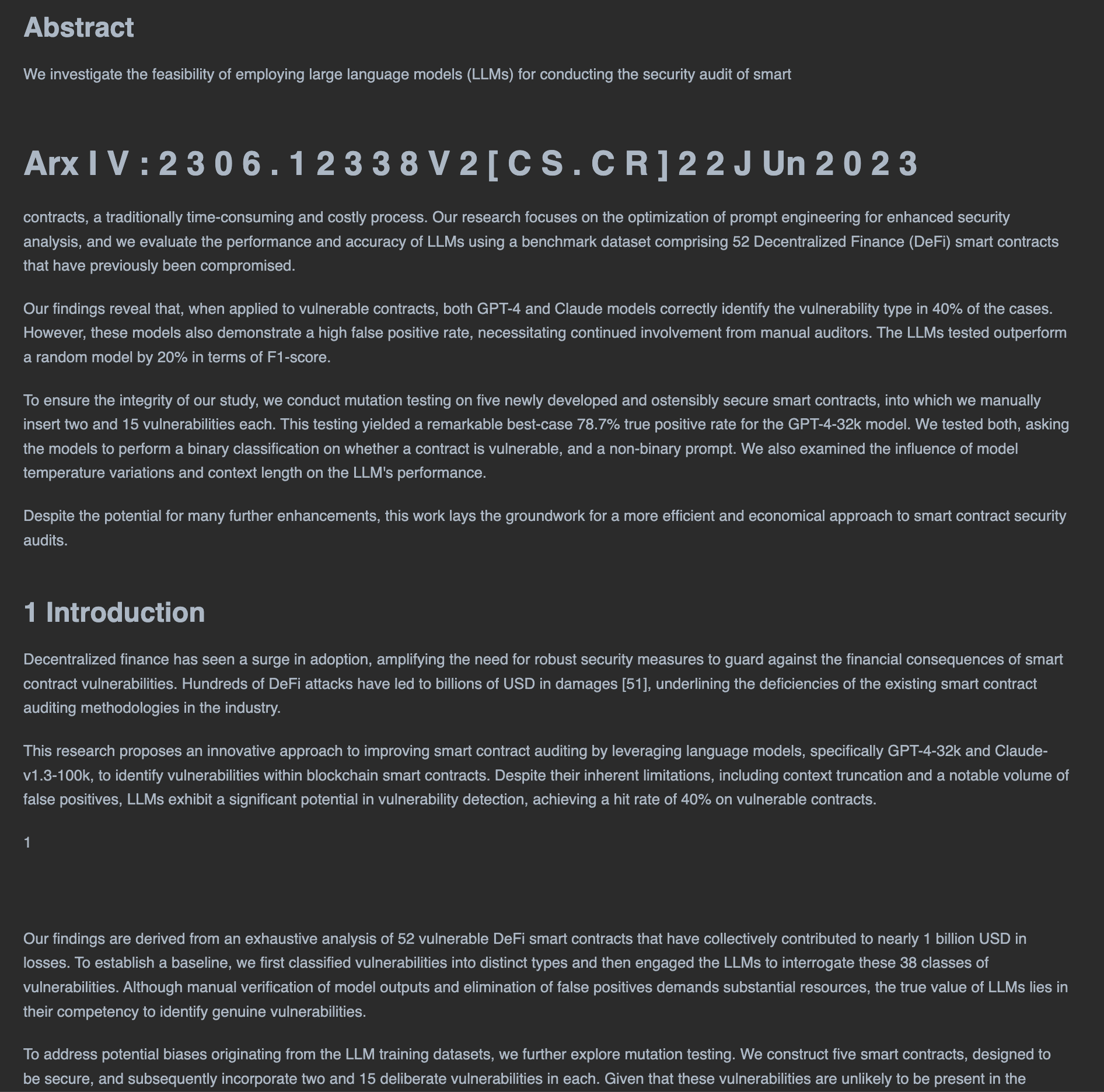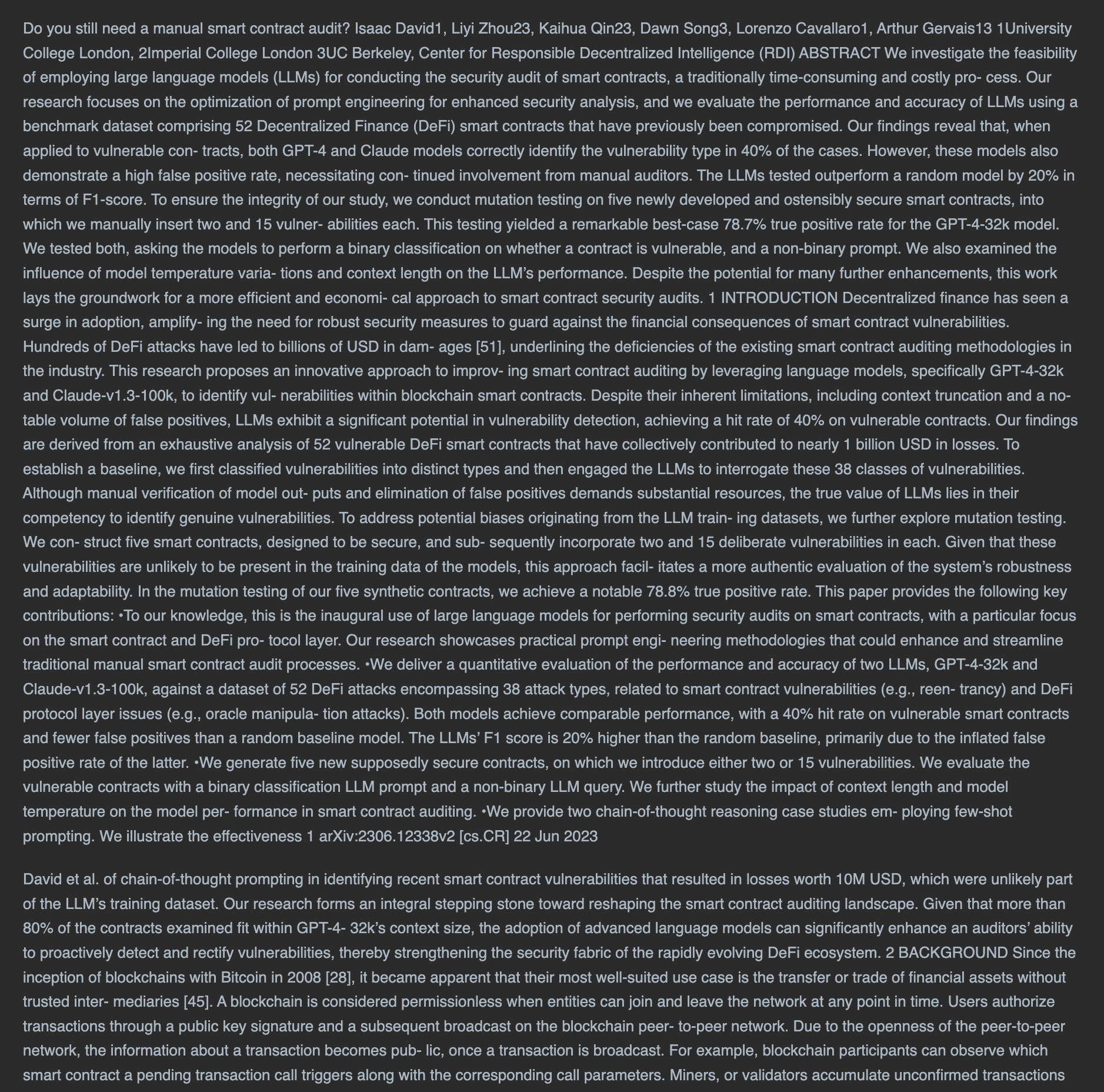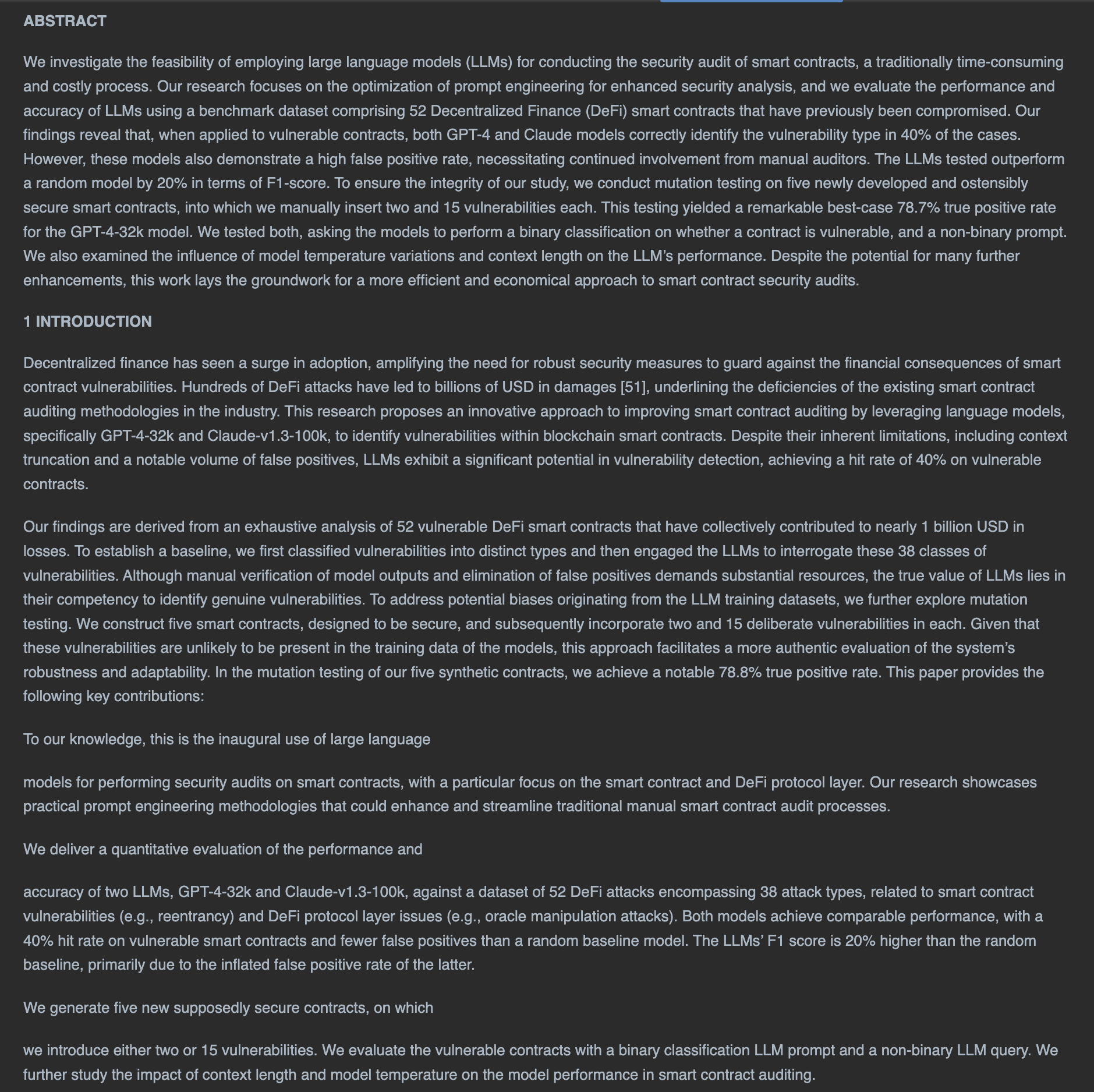Important
This backend server is a robust, scalable solution for effortlessly converting a wide range of document formats—including PDF, DOCX, PPTX, CSV, HTML, JPG, PNG, TIFF, BMP, AsciiDoc, and Markdown—into Markdown. Powered by Docling (IBM's advanced document parser), this service is built with FastAPI, Celery, and Redis, ensuring fast, efficient processing. Optimized for both CPU and GPU modes, with GPU highly recommended for production environments, this solution offers high performance and flexibility, making it ideal for handling complex document processing at scale.
| Original PDF |
|---|
 |
| Docling-API | Marker |
|---|---|
 |
 |
| PyPDF | PyMuPDF4LLM |
|---|---|
 |
 |
-
Multiple Format Support: Converts various document types including:
- PDF files
- Microsoft Word documents (DOCX)
- PowerPoint presentations (PPTX)
- HTML files
- Images (JPG, PNG, TIFF, BMP)
- AsciiDoc files
- Markdown files
- CSV files
-
Conversion Capabilities:
- Text extraction and formatting
- Table detection, extraction and conversion
- Image extraction and processing
- Multi-language OCR support (French, German, Spanish, English, Italian, Portuguese etc)
- Configurable image resolution scaling
-
API Endpoints:
- Synchronous single document conversion
- Synchronous batch document conversion
- Asynchronous single document conversion with job tracking
- Asynchronous batch conversion with job tracking
-
Processing Modes:
- CPU-only processing for standard deployments
- GPU-accelerated processing for improved performance
- Distributed task processing using Celery
- Task monitoring through Flower dashboard
- Python 3.12 or higher
- uv (Python package manager)
- Redis server (for task queue)
curl -LsSf https://astral.sh/uv/install.sh | shgit clone https://github.com/drmingler/docling-api.git
cd docling-api
uv pip install -r pyproject.tomlCreate a .env file in the project root:
REDIS_HOST=redis://localhost:6379/0
ENV=developmentStart Redis locally (install if not already installed):
brew install redis
brew services start redissudo apt-get install redis-server
sudo service redis-server start- Start the FastAPI server:
uvicorn main:app --reload --port 8080- Start Celery worker (in a new terminal):
celery -A worker.celery_config worker --pool=solo -n worker_primary --loglevel=info- Start Flower dashboard for monitoring (optional, in a new terminal):
celery -A worker.celery_config flower --port=5555- Check if the API server is running:
curl http://localhost:8080/docs- Test Celery worker:
curl -X POST "http://localhost:8080/documents/convert" \
-H "accept: application/json" \
-H "Content-Type: multipart/form-data" \
-F "document=@/path/to/test.pdf"- Access monitoring dashboard:
- Open http://localhost:5555 in your browser to view the Flower dashboard
- The API documentation is available at http://localhost:8080/docs
- Redis is used as both message broker and result backend for Celery tasks
- The service supports both synchronous and asynchronous document conversion
- For development, the server runs with auto-reload enabled
- Clone the repository:
git clone https://github.com/drmingler/docling-api.git
cd docling-api- Create a
.envfile:
REDIS_HOST=redis://redis:6379/0
ENV=productionThe project includes a Makefile for convenient management of Docker operations:
# Build and run in CPU mode with 1 worker
make docker-build-cpu
make docker-start-cpu
# Or build and run with multiple workers
make docker-run-cpu WORKER_COUNT=3# Build and run in GPU mode with 1 worker
make docker-build-gpu
make docker-start-gpu
# Or build and run with multiple workers
make docker-run-gpu WORKER_COUNT=3# Stop all containers
make docker-stop
# Remove all containers
make docker-down
# View logs
make docker-logs
# Clean Docker resources
make docker-cleanThe service will start the following components:
- API Server: http://localhost:8080
- Redis: http://localhost:6379
- Flower Dashboard: http://localhost:5556
Convert a single document immediately:
curl -X POST "http://localhost:8080/documents/convert" \
-H "accept: application/json" \
-H "Content-Type: multipart/form-data" \
-F "document=@/path/to/document.pdf" \
-F "extract_tables_as_images=true" \
-F "image_resolution_scale=4"- Submit a document for conversion:
curl -X POST "http://localhost:8080/conversion-jobs" \
-H "accept: application/json" \
-H "Content-Type: multipart/form-data" \
-F "document=@/path/to/document.pdf"- Check conversion status:
curl -X GET "http://localhost:8080/conversion-jobs/{job_id}" \
-H "accept: application/json"Convert multiple documents asynchronously:
curl -X POST "http://localhost:8080/batch-conversion-jobs" \
-H "accept: application/json" \
-H "Content-Type: multipart/form-data" \
-F "documents=@/path/to/document1.pdf" \
-F "documents=@/path/to/document2.pdf"image_resolution_scale: Control the resolution of extracted images (1-4)extract_tables_as_images: Extract tables as images (true/false)CPU_ONLY: Build argument to switch between CPU/GPU modes
- Access the Flower dashboard to monitor Celery tasks and workers
- View task status, success/failure rates, and worker performance
- Monitor resource usage and task queues
The service uses a distributed architecture with the following components:
- FastAPI application serving the REST API
- Celery workers for distributed task processing
- Redis as message broker and result backend
- Flower for task monitoring and management
- Docling for the file conversion
- GPU mode provides significantly faster processing for large documents
- CPU mode is suitable for smaller deployments or when GPU is not available
- Multiple workers can be scaled horizontally for increased throughput
- Using uv package manager for faster dependency installation and better caching
The codebase is under MIT license. See LICENSE for more information